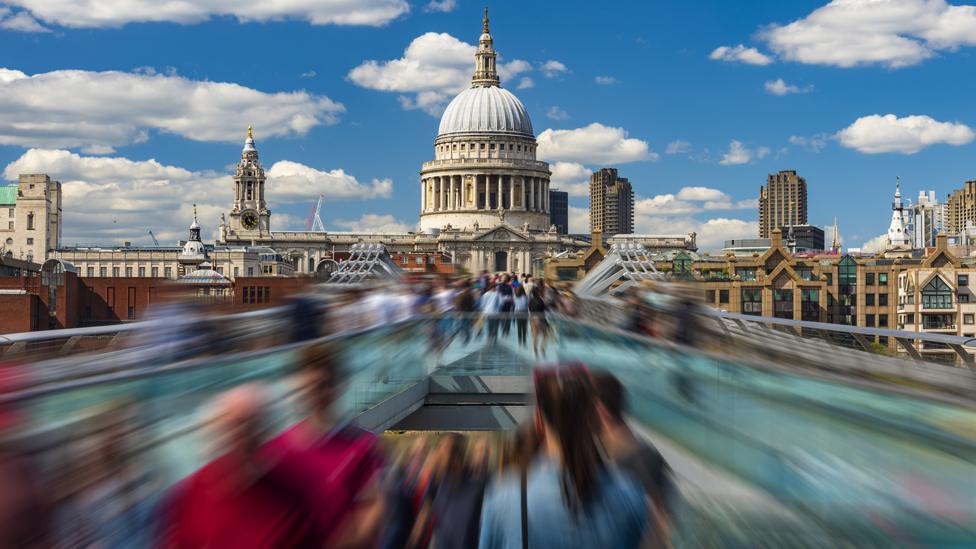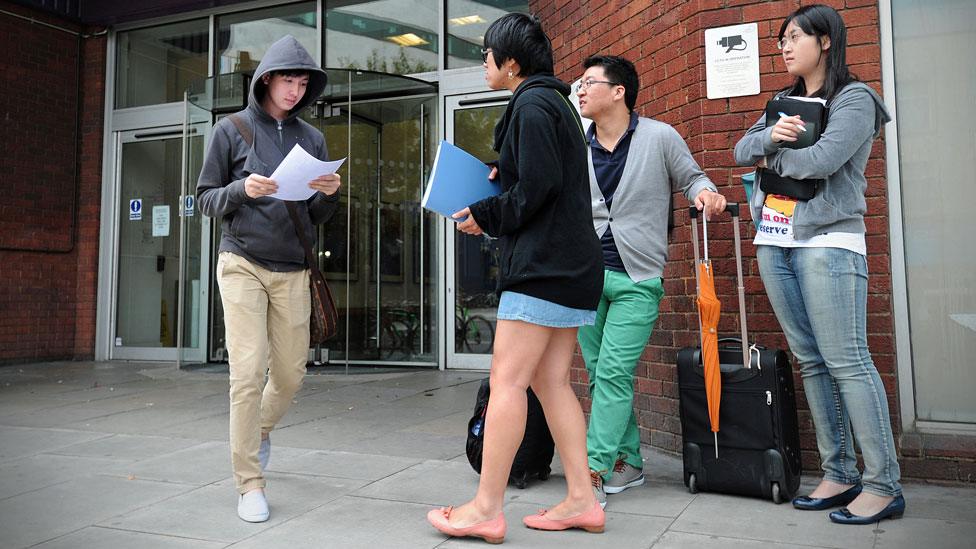Student granted UK visa after media uproar
- Published

Nadza Dzinalija said she was sure her visa had been approved because of media coverage
The UK has granted a visa to a student for an academic conference after a media storm over what lawyers said was a "far-fetched" and "absurd" case.
Two Amsterdam University students – originally from Bosnia and Turkey - had their applications rejected.
One submitted parts of his paperwork late and the other's student visa is due to expire in December.
Immigration officials feared they would not return home after the event - despite the students' return flights.
One student abandoned his effort to travel but the other, Nadza Dzinalija, told the BBC she was delighted the UK Home Office had overturned its decision.
"I'm really excited I can go. I'm sure it's because of the media attention," she said.
"They called me earlier and asked for more information and then I was told I could go to immigration service and have my passport stamped today."
The students were among 29 preparing to attend a gathering organised by Glasgow University's psychology department.
Ms Dzinalija, 21, had been worried the UK rejection would stay on her file, acting like a black mark for future visa applications.
'Arrogant' view
Jan Doerfel is a London-based barrister who has taken on her case free of charge.
"It's assumed she'd rather live in a hostile environment without status rather than continue life in a country she has invested in in terms of her education," he said. "The idea that the UK is the promised land is just an arrogant and ignorant attitude.
"They ignored the fact she has travelled extensively to Australia and within the Schengen area and has always complied with any immigration restrictions."
One of the UK's most high profile QCs, Philippe Sands, professor of international law at University College London (UCL), told the BBC he now regularly organises meetings outside the UK to avoid these situations.
"Problems with visas are a regular occurrence. Its partly due to government policy, and partly to the outsourcing to private companies of the processing of visas. For several years I have been unable to invite certain individuals - distinguished professors, international civil servants - to speak in my classes at UCL, or attend conferences in the UK.
"I now often organise meetings outside the UK to avoid visa difficulties. This is both for academic meetings and for professional activities as a barrister. Britain is now known around the world as a country that does not wish certain foreigners to visit. Its sad, it's appalling, and its discriminatory."
'Trying to close borders'
Some people on Twitter have mocked the idea that anyone would want to swap life in the Netherlands for the UK.
Allow X content?
This article contains content provided by X. We ask for your permission before anything is loaded, as they may be using cookies and other technologies. You may want to read X’s cookie policy, external and privacy policy, external before accepting. To view this content choose ‘accept and continue’.
Many academics are concerned this case is part of a worrying trend, which some suspect is linked to Brexit.
"My feeling is that it's the wider issue that there's a suspicion that everyone who comes to the UK is desperate to stay." Niamh Stack, Professor of Psychology at Glasgow University, told the BBC.
"This isn't an isolated case. It's generally the UK trying to close its borders. We need open borders to improve science, the exchange of ideas. At a time when the discipline is trying to open up and move forward Britain is doing the opposite."
A spokesperson for the Home Office told the BBC: "All visa applications are considered in line with the immigration rules and on the basis of the evidence provided."
- Published16 May 2018

- Published18 September 2018

- Published8 May 2018
- Published25 September 2018

- Published4 September 2018
